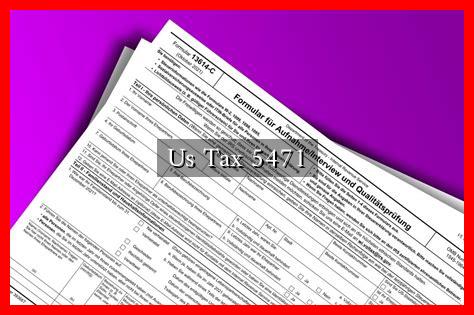-
Table of Contents
Understanding US Tax Form 5471: A Comprehensive Guide
For U.S. taxpayers with interests in foreign corporations, understanding IRS Form 5471 is crucial. This form is not just a tax requirement; it serves as a vital tool for the IRS to monitor foreign investments and ensure compliance with U.S. tax laws. In this article, we will explore the purpose of Form 5471, who needs to file it, the implications of non-compliance, and tips for successful filing.
What is Form 5471?
Form 5471, officially titled “Information Return of U.S.
. Persons With Respect to Certain Foreign Corporations,” is a form that U.S. citizens and residents must file if they have certain interests in foreign corporations. The form is used to report information about the foreign corporation, including its financial statements, ownership structure, and transactions with related parties.
Who Needs to File Form 5471?
Not everyone is required to file Form 5471. The filing requirements depend on the taxpayer’s ownership interest in the foreign corporation and their role within it. Here are the primary categories of filers:
- Category 1 Filers: U.S. persons who are officers, directors, or shareholders in a foreign corporation that is controlled by U.S. shareholders.
- Category 2 Filers: U.S. persons who own at least 10% of the foreign corporation’s stock.
- Category 3 Filers: U.S. persons who acquire or dispose of stock in a foreign corporation, resulting in a change in ownership.
- Category 4 Filers: U.S. persons who have a reportable event with respect to a foreign corporation.
- Category 5 Filers: U.S. persons who own shares in a foreign corporation that is a controlled foreign corporation (CFC).
Consequences of Non-Compliance
Failing to file Form 5471 can lead to severe penalties. The IRS imposes a penalty of $10,000 for each form that is not filed on time. Additionally, if the failure to file continues for more than 90 days after the IRS sends a notice of failure to file, an additional penalty of $10,000 per month may apply, up to a maximum of $50,000. Furthermore, non-compliance can result in increased scrutiny from the IRS and potential criminal charges in extreme cases.
Filing Requirements and Deadlines
Form 5471 must be filed with the taxpayer’s annual income tax return. For most individuals, this means the form is due on April 15th of the following year, with an automatic six-month extension available. However, if the taxpayer is living abroad, the deadline may be extended to June 15th. It is essential to keep track of these deadlines to avoid penalties.
Tips for Successful Filing
Filing Form 5471 can be complex, but following these tips can help ensure compliance:
- Maintain Accurate Records: Keep detailed records of your foreign corporation’s financial statements, ownership structure, and any transactions with related parties.
- Consult a Tax Professional: Given the complexities of international tax law, it is advisable to consult with a tax professional who specializes in foreign investments.
- Use IRS Resources: The IRS provides various resources and instructions for completing Form 5471. Familiarize yourself with these materials to ensure accurate filing.
- Stay Informed: Tax laws and regulations can change. Stay updated on any changes that may affect your filing requirements.
Conclusion
Form 5471 is a critical component of U.S. tax compliance for individuals with interests in foreign corporations. Understanding who needs to file, the consequences of non-compliance, and the best practices for filing can help taxpayers navigate this complex area of tax law. By maintaining accurate records and seeking professional advice when necessary, U.S. taxpayers can ensure they meet their obligations and avoid costly penalties. For more information on Form 5471 and related tax issues, visit the IRS website.




